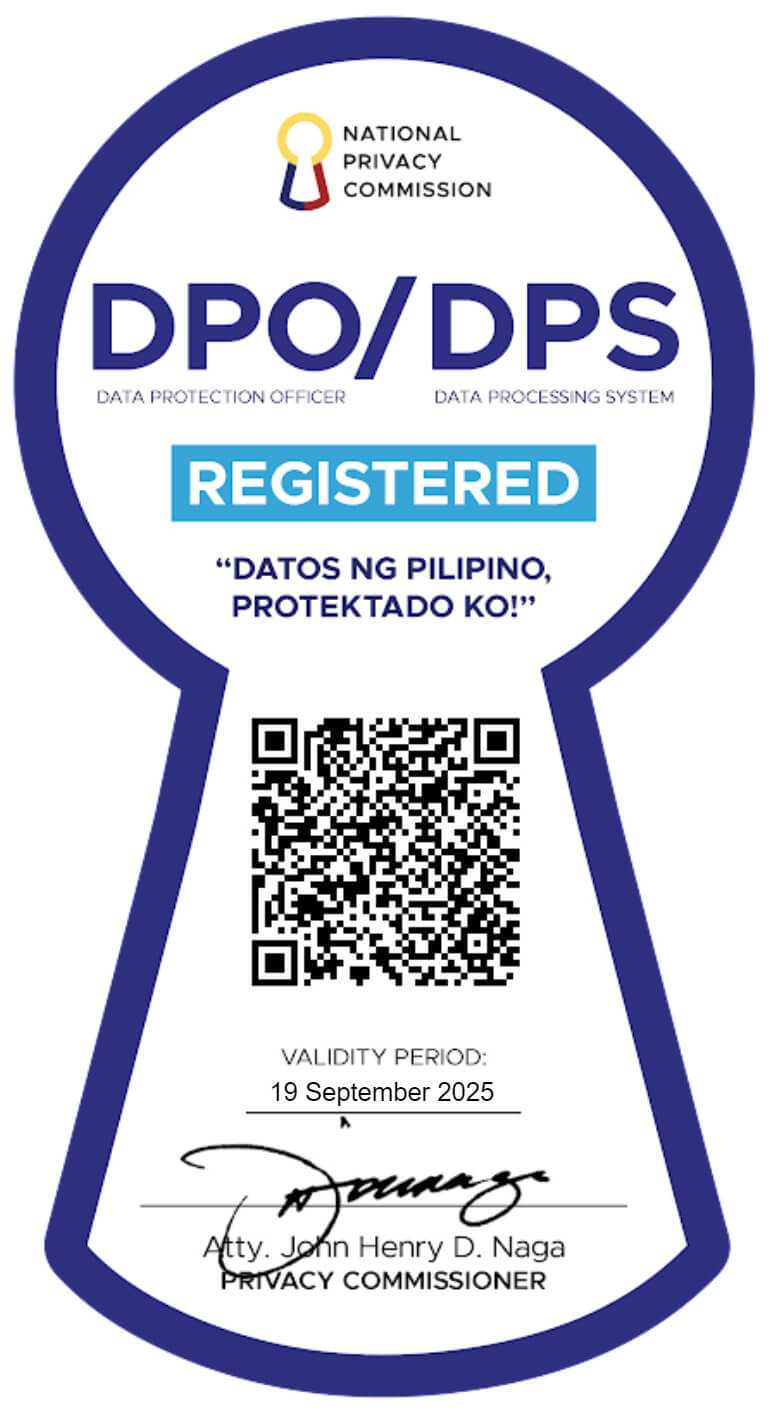-
About Us
Probe CX is a tech-powered, global customer experience organisation that amplifies human capabilities with technological excellence.
-
Awards and Accreditations
As an industry-leading CX and digital transformation provider, Probe CX has a resume to match any of our competition.
-
Compliance
Industry-recognised certifications to protect what matters most to our clients and their customers.
-
Locations
Over 19,000 team members delivering exceptional customer experiences across five countries.
-
Vision and Culture
We help our clients become modern digital organisations by combining the latest technology with people, process and data.
-
Executive Team
Meet the team with unmatched experience committed to helping organisations create environments for digitally-enabled CX to thrive.
-
 Blog
BlogDiscover the latest insights, information and trends in blogs created by customer experience experts.
-
 News
NewsLearn where Probe CX have been recognised in the news, including awards, accreditations, acquisitions, partnerships and more.
-
 Resources
ResourcesDownload our latest resources including whitepapers, case studies, tip sheets, reports and brochures..
A leading energy and gas industry retailer required support with credit collection activities and help to optimise their KMS.
- Blog
- How blockchain is set to change the CX landscape
How blockchain is set to change the CX landscape

That said, it is equally true that most people do not truly understand what blockchain is. Ask most people for insight and they will likely mention cryptocurrency. Some may even think it is the same as Bitcoin given how often the two words are mentioned in the same sentence. The overwhelming fact is that, outside of the financial sector, there is a general lack of knowledge about blockchain and that is concerning given the likes of Harvard Business Review believe it has the potential to create new foundations for our economic and social systems.
Yes – blockchain is a key technology behind the crypto revolution but it is so much more than a tool solely for the management of digital finances. Widely described as a ‘disruptive’ technology, it is focused on trust and security, hence why it has proven so popular among money movers. However, there are plenty of other sectors where those two attributes play a crucial role for both customers and the businesses that serve them.
With all the hype surrounding cryptocurrency, there has not been enough attention paid to the role blockchain can play in enhancing customer experience, digital solutions and contact centres. After all, a commitment to security and trust lies at the heart of the CX and that is why the time has come for business leaders to get a better understanding of blockchain and the potential it has to streamline their operations, foster happier customers and ultimately boost profits.
What is blockchain?
Befitting a technology that many people have limited awareness of, it is important to not only say what blockchain is but explain how it works. When it comes to the former, tech giant IBM defines blockchain as “a shared, immutable ledger that facilitates the process of recording transactions and tracking assets in a business network”. Whether an asset is tangible (eg: a house, car or cash) or intangible (eg: intellectual property, copyrights, branding), virtually anything of value can be tracked and traded on a blockchain network.
Blockchain is proving a winner because it provides immediate, shared and completely transparent information stored on an immutable ledger that can only be accessed by permissioned network members. Crucially, those members share a single view of truth and can see all the details of a transaction end to end, giving them greater confidence and allowing the chance to realise new efficiencies.
What are key elements of blockchain?
- Distributed ledger technology – with all network partners provided with access, this is the immutable record of transactions that are only recorded once, eliminating the duplication that is the bane of many traditional business networks.
- Immutable records – once a transaction has been recorded to the shared ledger, it cannot be changed or tampered with. Should an error occur, a new transaction must be added to reverse it and both transactions are visible.
- Smart contracts – to increase the speed of transactions, a ‘smart contract’ is stored on the blockchain and executed automatically when predetermined conditions are met. This set of rules means all participants can be immediately certain of the outcome with a third party’s involvement or time loss.
How does blockchain work?
- It all starts with a ‘block’ of data. Each transaction shows the movement of an asset (tangible or intangible) and the data block records the information of one’s choice – who, what, when, where, how much or even the condition of the asset.
- Blocks then connect with other blocks. As an asset moves from place to place or ownership changes hands, the blocks form a data chain. They essentially lock in the exact time and sequence of transactions, creating a secure chain that prevents blocks from being changed or another one inserted between two existing blocks.
- The transactions form a blockchain. Every time a new block is added to the chain, it strengthens the verification of the previous block and, in turn, the entire chain. By removing the possibility of tampering, it builds a ledger of transactions that network members can trust.
What are the benefits of blockchain?
- Greater trust – blockchain operates as a members-only network, meaning people can receive accurate and timely data while also knowing their confidential records will only be shared with members they have granted access to.
- Better security – one of the greatest features of blockchain is that no one can delete a transaction. That includes a system administrator, while consensus on data accuracy is required from all network members and all validated transactions are permanently recorded.
- Increased efficiencies – one of the great bugbears for organisations is the amount of time and resources wasted on duplication. Blockchain eases this burden by eliminating record reconciliations when a distributed ledger is shared among members. The use of smart contracts also speeds up transactions by storing and executing rules automatically.
Why should CX leaders embrace blockchain?
Few business areas are better suited to benefit from blockchain digital technology quite like customer experience. The modern consumer increasingly expects not only more personalised, efficient and convenient interactions on multiple channels but demands that their personal details are kept secure and private. The CX landscape is constantly evolving and blockchain is set to be one of the key technologies to help executives and their teams meet the rising need to evolve and innovate in line with their customer's expectations.
This is particularly so in the world of contact centres, which are increasingly opening their eyes to the potential benefits of blockchain in much the same way they have already embraced technologies such as intelligent automation, advanced speech recognition and interactive voice response.
As one industry insider told the CX Blockchain Institute: “From a CX perspective, it is going to completely change how a vendor or business interacts with its customers. Blockchain technology gives both the customer and the contact centre agent they interact with more control because the platform contains all the relevant information they need in an encrypted and secure manner.
“The CX benefit is the ability to provide instantaneous feedback or answers to the customer that are correct and relevant at the first time of asking, which negates the need for callbacks and time-consuming verifications.”
How will blockchain benefit contact centres?
While ensuring a consistent record of information for companies and their customers is an obvious advantage, there are various reasons for bringing blockchain into the contact centre environment. From creating a sense of trust and transparency to enhancing the way information is stored and used, the revolution is only just beginning.
Better interactions
Storing digital identities in the blockchain will allow agents to securely access relevant customer data and possibly even validate a customer’s identity using their digital ID. Along with reducing average handling time, the ability to provide deeper insights based on such data will help increase customer scores and build brand loyalty.
Financial boost
Imagine being able to provide new contact centre staff with more accurate customer information, thus reducing the amount of time and money needed to spend on training and ongoing guidance. Along with lowering overall contact centre costs, the opportunity to provide more meaningful and valuable customer interactions will help increase profits. The blockchain can also ensure ownership of a transparent and traceable data set, which can help improve the accuracy of reports and audits and, in turn, reduce the risk of fines or legal costs when issues arise.
Streamlined payments
Convenience rightly sits near the top of the customer experience period and blockchain is changing the game when it comes to payments. By minimizing or even eliminating paperwork, the disrupting technology is streamlining the payment process and, in the case of warranty and insurance claims, making the settlement process easier and faster to reach settlement. Blockchain transactions have also cut out the ‘middlemen’ who traditionally sat between a company and its customers, meaning the costs saved can be passed on to consumers in the form of better service at lower prices.
Improved security
One of the most exciting areas of blockchain and digital transformation is the role it is playing in helping companies better identify their customers and validate crucial information. Given the complexity and fragmentation of the current digital landscape, fraud is a serious concern due to the potential for fake online identities to be created. Blockchain’s ability to verify digital identities eases such concerns, while also helping reduce the number of large databases storing the PII (personally identifiable information) of millions of accounts.
Enhanced omnichannel
If there is one thing that frustrates the modern customer, it is needing to repeat themselves to a company when switching between the different channels they offer. Omnichannel solutions are crucial to business success and blockchain information can help track conversations between multiple channels and make it easier for businesses to provide a consistent experience for their target markets. Nothing will bring a smile to the face of a customer quicker than a contact centre agent who can see how they have interacted and instead keep the transaction moving.
Summary
If there is one thing that has been proven in the past decade, it is that the right disruptive technology at the right time can revolutionise an industry, let alone a business. The blockchain user experience has already done that in the financial sector and as demands grow for more efficient and meaningful customer experiences, the technology is poised to do the same for CX and contact centres. With a focus on trust, transparency and the best use of data, businesses have a golden opportunity to up their CX ante … one block at a time.
A report by tech leader Progress found 47% of companies had not yet started their digital transformation – but it is never too late to get back on track. Discover how digital transformation changes the way business gets done and the incredible impact it can have on customer experience.
Related Articles
Customer Experience CX
How to improve contact centre agent performance
Learn practical tips to improve contact centre agent performance in the modern-day contact centre.
Contact Centre
Cloud contact centres – what they are and why they work
Learn how the cloud is revolutionising the contact centre environment and making life better for customers, agents and businesses.
Shared Services
4 ways to manage overflow
Top overflow solutions to help improve your overall customer experience in times of peak demand.
© Copyright 2025 Probe CX | ProbeCX is a proudly owned subsidiary of Probe Group
Privacy Policy | Responsible AI Policy | Financial Hardship Policy | Whistleblower Policy | Complaints Procedure | Supplier Code of Conduct | Make a Payment | Client Login




